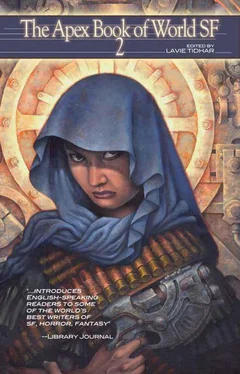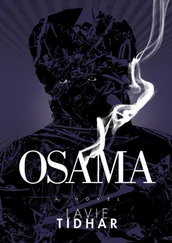Osati swallowed his response when he saw Katulo enter.
The clinic was a circular hovel with little space. In the daytime, patients were received in the yard outside. Eyo and Osati stood between two unpolished wood cabinets and the sleeping cot. Lying on it, Chama’s body looked like slaughtered game.
“Fill a basin with water,” Katulo ordered. Eyo scrambled to do as he had been instructed. Katulo turned to Osati. “Bring me bandages and my operating kit. You remember the layout of the clinic?”
Osati nodded. He had been an apprentice five years earlier but had left prematurely. Katulo still felt anger at his decision. He had shown so much potential. His memory had been impeccable, and he had been able to make terrified patients relax with only a few words. He would have been a gifted healer.
Katulo worked intently for the next twenty minutes. He cleaned and sterilised the wound in Chama’s side before stitching it closed. The boy’s breathing went from shallow sporadic bursts to a smoother, though still uncertain, rhythm.
“Will he live?” Osati asked.
“Maybe, I have done all I can. How did this happen? This wound was not caused by an animal.” It was a single, deep, horizontal slash. A machete?
“It was those Hutu bastards,” Osati spat. “I swear by my ancestors they will pay for this.”
The oath made Katulo flinch. “What happened?”
“They attacked us for no reason. We were at a rally in Bujumbura.” It was because his passion lay in politics that Osati had left Katulo’s tutelage. “Some Hutus were watching us and laughing. We ignored them. After the rally Chama, Dengo and I were walking back here alone and they attacked us.”
“Where is Dengo?”
“He is coming. I ran here carrying Chama. ”
“You ran here all the way from Bujumbura?”
“We were about half way.”
Still, that was a two-hour walk without carrying a wounded man in your arms. Katulo now noticed that Osati was covered in sweat and blood. His lips were parched and his breathing was irregular.
“Sit, I will bring you some mango juice.”
“I have no time. The people of the village must be awoken.”
“Why?”
“They nearly killed him. You said he may die.”
“And rousing the village will do what? Impress the ancestors so much they will help Chama?”
“You joke about this?” Osati’s disgust was unconcealed.
“If your friend lives it will be because of me. Do me a favour in return. Let your anger cool. There is nothing you can say tonight that you can’t say tomorrow. After the wedding…”
“After this, the wedding will be cancelled.”
“Love is a good reason to postpone anger. The opposite is not true.” His words were just aggravating Osati. “Please, hold off. After the wedding I will go to Bujumbura and speak to Minister Kalé. With his help we shall apprehend the ones who attacked you and deal with them. You, Dengo and Chama will all testify.”
“Kalé is one of them; it’s a waste of time.”
“Kalé and I have been friends three times as long as you have been alive. Kalé is wise and his word is respected among the Hutus.”
Osati dipped his head but he was clearly insincere.
Katulo sighed. “I’ll tell you how he’s doing at the wedding.”
Osati left without a word of thanks.
“This is called an anaesthetic,” Katulo said as he put the half-empty bottle back into his operating bag. “It dulls the body’s responses to pain.”
“You want to teach me now?” Eyo was flustered. He was looking out of the window.
“What better time is there to teach?”
Eyo pursed his lips. He shifted uncomfortably. “It…it’s late. I’m tired.”
“What is the truth?”
“I told you…”
“The truth might change my mind.”
“I want to see what Osati does. I think he will wake up some people and they’ll talk about this.”
“I should have known. Learning is more important. Long ago healers used to have to rely on—”
“You can teach me any time.”
As good as he had been at soothing people, Osati was better at working people up into a frenzy. Katulo didn’t want Eyo to be exposed to that. He tried a different approach. “Have you ever seen a Waking?”
The question took Eyo by surprise. “No, of course not. I am not yet sixteen.”
“I will let you go now, no teaching, and if you go straight to bed, then tomorrow, when all the other children are sent away, I will make sure you can stay and watch.”
“Really?” The idea of watching a secret meeting paled in comparison to the chance to see a mystical ceremony.
“Do you promise?”
“I promise.” Eyo’s index finger mapped out a cross shape over his chest.
Katulo knew that Eyo had no idea what the origin of that gesture was. The worship of that tortured white saviour had faded from Burundi. “Good. You may leave.”
Katulo continued cleaning up. He got out an old rag and mopped up the blood. When he was finished, he threw it and Chama’s rent shirt into the dustbin. Finally, he blew out the gas lamp and returned to his house. It took a long time for him to get back to sleep. When he finally managed, he dreamt.
As with most young boys, obedience did not come naturally to Katulo. When his father had told him to stay behind with the women and other children, he immediately chose to do the opposite. He was too clever to be fooled by his father’s placatory, “They need you to protect them.” Katulo was fourteen, two years away from his initiation ceremony. He was too old to stay where it was safe. When he asked about the fighting, his father always told him, “You’re too young to understand.” This angered him. He knew this was about those Hutus. Fenke at school was a Hutu. He was stupid and Katulo knew it wasn’t his fault. He couldn’t be blamed for being born that way. The fighting is because the Hutus are stupid. What was so hard to understand about that?
When his father and the other men had left, Katulo sneaked out of the village and followed them. He stayed distant enough that he was not seen. He was a good tracker. He shadowed them for over three hours until they reached a small primary school. Its faded sign depicted a laurel wreath wrapped around a shield and words that were too rain-washed to read. Katulo hid amongst some bushes and watched the adults go into the school.
Waiting was boring. This entire escapade had been far less exciting than Katulo had hoped.
He waited for twenty minutes, passing the time by counting how many bugs and birds he saw. He created an imaginary conflict—birds against bugs. Every bug he saw gave the bugs ten points and every bird he saw gave their side the same. A clumsy ladybird that had tumbled from a leaf had just put the bugs sixty points ahead when he heard a loud bang. He heard three more abrasive explosions and knew they were gunshots. His father and the others had probably been ambushed. Katulo ran forwards instinctively. He advanced with no thought for how he planned to defend his father. He just couldn’t let it happen. When he reached the school, he pushed open a set of double doors and ran in. Inside, he heard terrible sounds.
The noise woke him up. This was the point where the nightmare usually ended. Sometimes it would be later. He had not had the dream in a long time, but Osati’s rage had brought the memories back. It was those Hutu bastards. I swear by my ancestors they will pay for this. “ It cannot happen again,” Katulo said aloud. Afterwards, he was unsure whether he’d said this to reassure himself, or as a prayer.
Weddings in Azamé village were huge. Even poor families slaughtered at least two goats. The Gomozis were a wealthy family so the wedding was even grander. Celebration began at sun up and would keep going through the night. There was loud music, hot-blooded dancing, and the smell of roasting meats saturated the air. Freshly baked pastries and honey-dipped treats were pulled out of ovens and children’s faces were soon coated in sticky syrup. There was much laughter and boisterous jesting. The most acclaimed storyteller in Burundi told a wild tale of Hyena the trickster. It had no moral; it was simply for enjoyment. The couple wore costumes that were dyed in multiple colours. Dozens of well-wishers surrounded them.
Читать дальше












